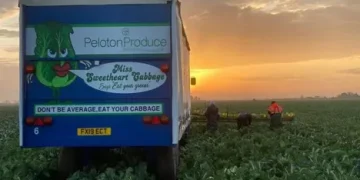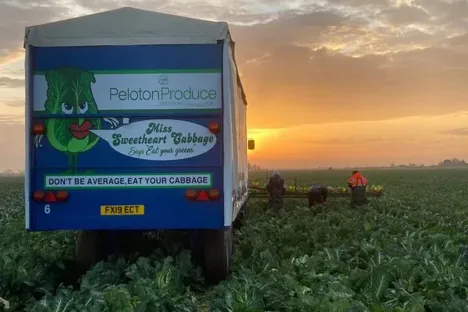Lincolnshire Grower Reflects on Supply Dynamics and Industry Challenges
June has proven to be a dynamic month in the brassica crop market, marked by fluctuating demand and supply challenges. Nigel Clare from Peloton Produce in Lincolnshire shares insights into their recent experiences and observations.
Recovering from Delayed Planting
“After being approximately two weeks behind schedule in April, we’ve successfully caught up,” Nigel Clare reports. Despite cooler temperatures in May, optimal light and moisture levels facilitated rapid growth, aided by a brief but beneficial hot spell three weeks ago. This recovery has allowed Peloton to maintain on-time planting and harvesting schedules.
Demand Outpaces Supply
The contrasting fortunes between regions have become evident, with the southwest facing more challenging planting and growing conditions than Lincolnshire. Nigel notes, “Demand for brassica crops has surpassed supply, primarily due to shortages from the southwest.” This reversal from the usual scenario underscores the importance of diversifying production areas for risk management.
Impact of Weather Variability
Nigel highlights the significant influence of unpredictable weather patterns on brassica crops. “Volatile weather combined with higher labor and input costs has eliminated the era of cheap vegetables,” he observes. This shift is prompting industry stakeholders to reconsider cost structures and adopt more resilient growing practices.
Current Harvest and Market Trends
Peloton is currently harvesting a variety of brassicas including red, white, pointed, and Savoy cabbage, broccoli, cauliflower, and kale. “We were ahead in Kale harvesting by approximately three weeks,” Nigel mentions. While cauliflower lagged initially, it is now catching up, driven by robust market demand amidst delayed production in other regions of the UK and Europe.
Challenges in Supply Planning
Nigel expresses concern about supply planning within the industry, noting that delays in program issuance contribute to supply volatility. “Costs and weather uncertainties discourage over-supply,” he explains, emphasizing the need for improved planning and professionalism across the sector.
Future Outlook
Looking ahead, Peloton plans to initiate vegetable planting in Cornwall from July, targeting harvests from November to April. This dual-location strategy aims to mitigate regional risks and ensure consistent supply to meet market demands effectively.































